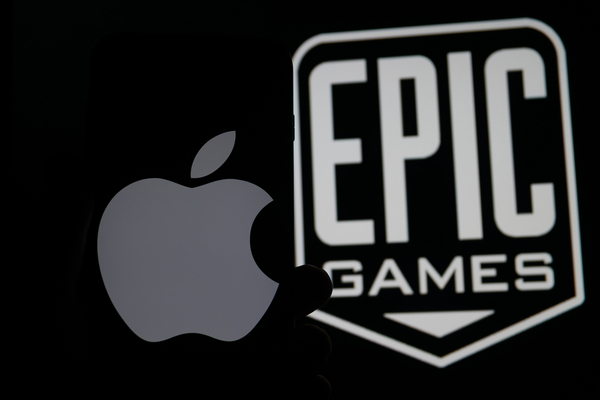The Verge reports that Judge Yvonne Gonzalez Rogers ruled for a permanent nationwide injunction blocking Apple not only from keeping iPhone users in the dark about alternate ways they can pay, but potentially allowing developers to actually stick their own purchase mechanisms into their own apps.
It’s a win for developers in general, but not really for Epic.
Here’s why. It’s not a win for Epic for two reasons: First, because the judge explicitly decided that Epic’s injection of its own direct payment scheme into Fortnite on iOS — a move designed to provoke this entire lawsuit — was not okay. Epic breached its contract with Apple.
Second, because even if Epic did want to now insert, say, a PayPal button into Fortnite, it can’t: Apple terminated Epic’s developer account when the company breached its contract, and Judge Gonzalez Rogers confirmed that Apple is completely within its rights to keep Epic off the App Store for good.
“Apple has the contractual right to terminate its DPLA with any or all of Epic Games’ wholly owned subsidiaries, affiliates, and/or other entities under Epic Games’ control at any time and at Apple’s sole discretion,” ruled Gonzalez Rogers.
Epic also directly lost some $3.6 million, which it has to pay Apple. That’s because Epic made roughly $12.2 million in revenue with the direct payment mechanism it injected into Fortnite against Apple’s rules, and Gonzalez Rogers decided that Apple deserves its 30 percent cut of that money.
Indirectly, you could argue that Epic also lost its considerable investment in making this lawsuit a success — not only legal fees, which it won’t recoup, but potentially hundreds of millions of dollars from people who would have been playing Fortnite on iOS if not for its removal from the App Store. In its first two years, the game made $614 million on iOS alone, according to Epic’s records — $52.7 million of that in Q4 2019.
After Fortnite was removed from the App Store, it’s possible people who’d already installed the game kept on making purchases, but it’s unlikely they did it at scale: Fortnite players on Apple hardware lost cross-play, access to new events and new things to buy in August 2020 when the game effectively split in two.
And all Epic has to show for that money is… well, the biggest change in App Store history, as Mark Gurman points out. Here’s the rub. As of right now, and after all of this, Epic can’t take advantage of it. Epic isn’t even bothering to spin today’s ruling as a win, which makes some sense: publicly, its goal was to #FreeFortnite, and it completely failed at that. Fortnite on iOS is still under Apple’s lock and key. So instead of changing its tune, Epic has said they will simply appeal.
Still, those millions or even hundreds of millions Epic has lost (or stands to lose) pale in comparison to the billions Apple stands to lose if that App Store change is thoroughly adopted and legally enforced. Apple makes roughly $19 billion a year from apps, $6.3 billion of that in the US where the ruling has legal weight, so Apple has got to notice a dent in that revenue.
Curiously, Apple is declaring the decision a “resounding victory.” That also makes sense seeing how it downgraded Epic’s original request for the courts to call Apple an illegal monopoly under the Sherman Antitrust Act all the way to a single injunction under the California Unfair Competition Law. The courts aren’t forcing Apple to allow alternative app stores, or sideloading, or to change its 30 percent fee in any way at all.
But a true victory wouldn’t have left Apple watching billions of dollars in revenue potentially slip out the door, or losing any control at all (or, for that matter, seeing Apple’s true nature as a cutthroat business entity exposed to the world). Apple prefers to make far smaller concessions, like when it volunteered to Japanese regulators that it could allow a specific category of “reader” apps to bypass its store for payments — even though Apple has the first and last word about whether an app qualifies to be a “reader” app.
You could possibly call the ruling a win – for anyone who was rooting for both tech giants to crash and burn (a lot of cash).
—
Photo Credit: Camilo Concha / Shutterstock.com
